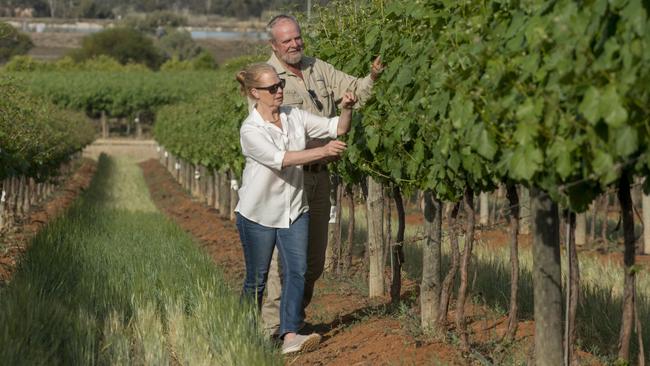Chalmers Project and Ruggabellus do small batches of great wines
I need to tell you about these exciting new Aussie wines, even though you may not be lucky enough to taste them.

It’s a perennial problem. I come across some fabulous new wines that blow me away. I can’t wait to share my discoveries with you, dear reader. But then I find the wines in question are almost sold out — or were made in such tiny quantities that you will be unlikely ever to find them, let alone buy them and taste them for yourself.
See my conundrum? If I don’t tell you what I think about some of the most exciting wines in Australia then I’m not doing my job. But if I do tell you about them and you can’t try them, I run the risk of receiving irate emails from frustrated readers.
It’s a risk I’m willing to take. Because the following rare, almost sold-out wines are not only truly delicious, they are also groundbreaking.
The first clutch of wines comes from our old friends the Chalmers family. I’ve written in these pages before about their work importing and promoting new grape varieties. For the last couple of years the Chalmers have taken the idea of experimental winemaking out of the lab with an initiative first called #bucketwine (because that’s about how much of each was produced) and now dubbed Chalmers Project: extremely small batches, just a few dozen bottles of each, mostly sold on-premise in bars and restaurants.
Eleven wines from the 2016 vintage have just been released under the Project label (all are around $32 RRP — assuming they ever see a retail shelf). All are worth trying, but some I find particularly mesmerising.
The white nosiola grape comes originally from Trentino in Italy’s north, but is also clearly at home in the Chalmers’ vineyard in Heathcote, central Victoria: the wine it makes has the most entrancing texture of creamy grape pulp and an exquisite perfume of gentle wild fennel. Utterly beguiling.
The red aglianico grape is from the other, hotter end of Italy, around Naples, and the Chalmers have planted a number of different clones of the variety at their vineyard at Merbein, near Mildura. In 2016 they made wine from four of these clones, produced identically but ending up quite different in the glass: again, all are good but the one I loved most of all was the Vulture MAT2 (the clone number), with its refined purple fruit, its bright, grippy tannins and its Campari-like bite. More: chalmersproject.com.au
The second batch of wines I want to tell you about are the 2015 reds from small Barossa producer, Ruggabellus. Again, I have written before about how this producer is helping to redefine our perception of the Barossa, but with the 2015s, winemaker Abel Gibson has stepped up to the next level of quality and finesse.
All the Ruggabellus reds are blends of grenache, shiraz, mataro and cinsault, in differing proportions. In past vintages I’ve been consistently seduced by the mataro-dominant Efferus, but in 2015 the wine that has me completely under its spell is the grenache-dominant Timaeus.
On one level, describing a Barossa grenache blend as “pinot noir-like” or “Burgundian” is a bit weird and even unhelpful: I’m sure if you tasted the Timaeus alongside, say a nice Volnay Premier Cru, the Barossa wine would reek of its Australian-ness.
But tasted on its own that’s exactly how the Timaeus comes across: translucent in colour and perfume, charmingly pretty (little red hedgerow berries; delicate spice), and with a taut, tart, seductive finesse — distinctly Volnay-like. I tasted/drank a bottle over a number of days and it got better and better with air, making me think it’ll develop beautifully in the cellar.
Expect to pay around $45 a bottle for it — if you can find one. More: ruggabellus.com.au
